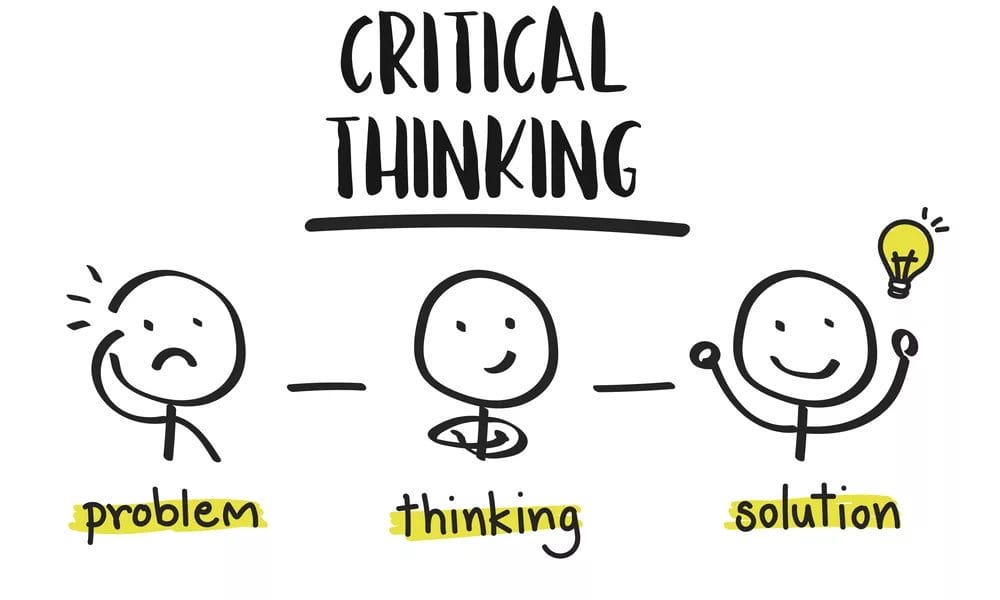Home > Blog > The Essential Skills Every Product Manager Needs to Succeed
The Essential Skills Every Product Manager Needs to Succeed

Product managers are responsible for defining the product strategy, delivering value to customers, building roadmaps, and driving direction. They also drive alignment between multiple teams to bring a product vision to life. That sounds like a lot to juggle! Product is certainly not easy, so how can you ensure you’re set up for success?
In this blog post, we’ll dive into the essential skills every product manager needs to succeed, broken down into three categories: power skills, practical skills, and technical skills.
Power Skills
Power skills (also known as “soft skills”) can make or break a product manager’s effectiveness. These skills are essential for collaborating with various stakeholders, navigating challenges, and staying adaptable in the face of change.
Empathy and Social Awareness
Empathy is a crucial skill for product managers, as it allows them to truly understand the needs and pain points of their users. By putting yourself in the shoes of your audience, you can make informed decisions that cater to your users’ wants and needs. But empathy is required to do more than just understand users – it allows us to connect to our team and purpose.
Empathy also helps when working with various stakeholders, including engineers, designers, and business leaders. Understanding the perspectives of others can facilitate smoother communication and collaboration, ultimately leading to better products (and a more supportive work environment!)
Critical Thinking
Critical thinking is a necessary skill, as PMs often face complex challenges that require innovative solutions. You must be able to analyze situations, consider different perspectives, and make informed decisions without any ego or personal feelings being involved.
Critical thinking is also crucial for identifying opportunities and risks in the product development process. By evaluating potential outcomes and assessing their impact, you can make strategic decisions that propel their products forward while mitigating potential pitfalls.
Building Trust and Influence
Strong relationships with stakeholders is crucial. Trust-building, underpinned by transparency, reliability, and understanding stakeholders’ needs all create an open workplace of communication and collaboration. Active listening promotes mutual respect and credibility – two factors that are key to a successful team.
You must also possess the ability to influence others in order to gain support for their ideas and decisions. This skill requires adept persuasion and negotiation techniques, which can rally teams and stakeholders around a shared vision.
Communication Skills
All product managers must have excellent communication skills – this is non-negotiable. You must be able to convey complex ideas and concepts in a manner that is both easy to understand and engaging. This involves distilling information into its most crucial elements, and presenting it in a way that captures the attention of the audience. Many refer to this as “storytelling”: being able to bring others on a journey that keeps them actively engaged.
Clear and concise messaging is particularly important when presenting to stakeholders, writing requirements, or discussing plans with teams. By honing this skill, you can ensure that their message is accurately received and understood, minimizing miscommunication and keeping everyone on the same page.
Some techniques for developing clear and concise messaging include using straightforward language, avoiding jargon when possible, and utilizing visuals to support key points.
Part of being a good communicator is also knowing when not to talk. Active listening is a critical component of effective communication, as it demonstrates to others that their input is valued and considered. Those who practice active listening can more easily build trust, resolve conflicts, and gain insights that contribute to better decision-making.

Practical Skills
In addition to power skills, product managers need to develop a range of practical skills to be successful in their roles. These skills include research, prioritization, marketing and business awareness.
Research
Conducting thorough research is a really important aspect of product, as it provides the foundation for informed decision-making. (Never make a decision without evidence!)
1. User Research
User research allows your team to understand the needs, preferences, and pain points of your audience. By gathering insights from interviews, surveys, usability testing (to name a few), you can ensure the product aligns with user expectations and solves real problems. Be sure to prioritize talking to customers as much as possible!
2. Market Research
Market research helps assess the competitive landscape, identify trends, and uncover opportunities for growth. By analyzing market data, industry reports, and competitor offerings, you can make strategic decisions that position products for success and differentiate them from others in the market.
This may sometimes be led in conjunction with a product marketer, who can assist you in running market research to further understand some of these trends. However, it’s important for PMs to be actively involved in this! The more you can learn about your users and market, the more you can continuously adapt to changing needs and be more innovative.
Prioritization
Effective prioritization is essential for the successful development and launch of a product. You will need to balance various factors, such as user needs, resource constraints, and business objectives, to determine which problems to solve and outcomes to pursue. Instead of focusing solely on building features, identify the most pressing issues and desired results that will bring maximum value to both users and the business.
Another crucial aspect of prioritization is balancing the cost of delay. This means understanding when it’s the right time to address a particular problem or pursue a specific outcome. You must always consider the potential consequences of postponing a decision or delaying a project and weigh those against the benefits of immediate action.

Marketing and Business Awareness
A strong understanding of marketing and business principles will allow you to create products that resonate with your audience and align with business objectives. Having a sense of the commercial aspects of the organization will give you a unique edge when it comes to understanding your market, and how to best develop features that will have a positive impact.
If you’re thinking – this must be the product marketer’s job, remember two key things:
- Product marketing is product.
- In the absence of a product marketer, it is the product manager who manages positioning and assists marketing with messaging.
You must also have a strong business sense, as part of your role is to support the overall business strategy and contribute to the achievement of key objectives, such as revenue growth or market expansion. By aligning their product vision with business goals, you can create a roadmap that maximizes value for both users and the organization. This well-rounded approach combines marketing acumen and business awareness to design and execute product strategies that drive success and deliver value to all stakeholders (and of course, users!)
Technical Skills
While product managers don’t need to be expert coders, having a solid grasp of basic principles and the technologies used in their industry can make a significant difference in the ability to lead and manage product development teams.
In some cases, you may also benefit from having knowledge of SQL, especially when working in data-heavy industries. You will be able to query databases and analyze data more efficiently, providing valuable insights that can inform product decisions and drive improvements.
Conclusion
The field of product management is constantly evolving, and as such, continuous learning and development are crucial for product managers to stay ahead of the curve. By dedicating time to refining skills, embracing feedback, and learning from past experiences, you can grow professionally and better position yourself to tackle the challenges they face in their roles. In turn, this commitment to growth and development will enable you to more effectively deliver value to their customers and drive the success of your products, ultimately benefiting your organization as a whole.

